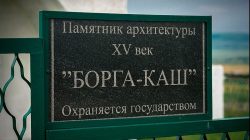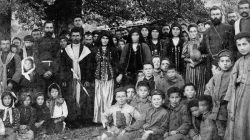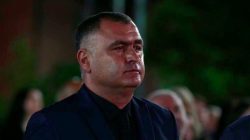
Tbilisi/Agency Caucasus – Future meetings of the Joint Control Commission, or JCC, will remain the same, members of the commission agreed after they tabled a proposal for debate in the capital city Tbilisi of Georgia to ease tension over Georgia’s goal of annexing South Ossetia until 2008.
The JCC was created in 1992 as a peacekeeping force to operate in South Ossetia in a bid to resolve the conflict between Georgia and South Ossetia. It consists of four members with equal right to representation: Georgia, North Ossetia, Russia and South Ossetia.
This was a gathering of the commission members after a long period of time since they last met. Though unsuccessful in meeting their objectives, the member countries reached agreement to keep the format of their future meetings the same.
Dmitri Mancaladze was at the meeting as a representative of Georgia. Mancaladze is acting as an assistant to the Georgian minister entitled to oversight of resolving separatism. Boris Cociyev represented South Ossetia, Teymuraz Kusov North Ossetia and Ambassador Yuri Popov Russia.
The members gathered in the Tbilisi Office of the Organization for Security and Co-operation in Europe, or OSCE.
Representatives of the Commonwealth of Independent States, OSCE, and the Commission of Europe were also among those who attended the meeting.
The Ossetian administration made it plan in its demand, despite objection from Georgia, that South Ossetia and Georgia must reach agreement not to resort to use of force in resolving the conflict between the sides.
Tension was considerably high at the meeting, Radio Liberty reported, especially when topics like disarmament and guaranteed compliance with agreements were under discussion.
Mancaladze called for work contain arm trafficking to have a new police station that would maintain a tight control of the transition through the Roki tunnel to Russia from South Ossetia.
Georgia was favouring the idea that the inclusion of Russia in the JCC weakened its position—something that called for a new formation under participation of some western powers. However, Popov argued that the JCC would contribute towards intensifying peace in the region.
Discussion ended with agreement among members of the commission to continue with future meetings in Moscow, Tshinval or Vladikavkaz.
The outcome of this meeting came in such words from Popov as follows: “There is a growing number of problems facing us. Despite an increasing level of variety in approaches among the members towards those problems, the commission members managed to gather together and reach the unanimous agreement to keep the future JCC meetings the same.
The date for the next JCC meeting has not yet been set.
The full-attended last JCC meeting was on December 27, 2006. Georgian officials were absent from the Tshinval meeting in 13-14 July 2007. Ossetian officials were absent on grounds of security from the
ÖZ/FT








